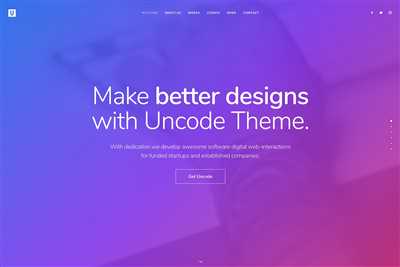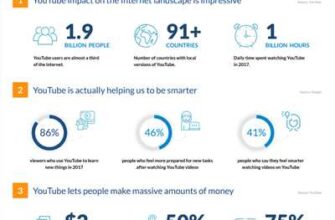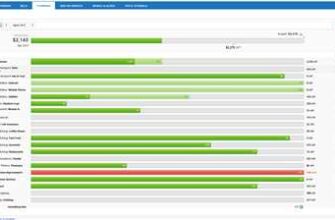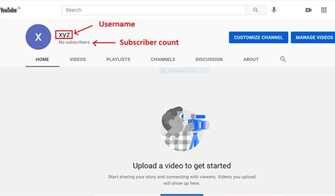
Creating a professional website is easier than ever today, thanks to the variety of tools and services available. Whether you’re a business owner who wants to give your online presence a boost or an individual looking to start a blog, there are options that make it possible to have a high-quality, custom-built website without needing to hire a professional designer.
One of the key factors that makes website creation accessible to everyone is the availability of website builders. These tools offer a WYSIWYG (What You See Is What You Get) interface, allowing users to design and build their websites without any coding or technical knowledge. This means that even if you’re a beginner, you can create a great-looking website with ease.
In addition to the ease of use, website builders also come with a variety of features that help you add functionality and improve the appearance of your site. For example, many builders offer customizable templates and drag-and-drop editing, allowing you to easily create a unique and professional-looking website. Plus, they often include built-in analytics, allowing you to track the performance of your site and make data-driven decisions to optimize its success.
While website builders are a great option for many individuals and small businesses, there are also other services available for those who require more advanced functionality. Some professionals might find website builders to be too limiting for their needs, and in these cases, hiring a professional web designer or developer might be necessary. This allows for a more custom and high-end website design, with the ability to outline specific requirements and create a unique piece of online real estate.
- Professional Website Builder vs Hiring a Web Designer: Which is best for you?
- Professional Website Builder
- Hiring a Web Designer
- Free Custom Mockup
- Your General Website Appearance
- 1 Create a Website Yourself with a Website Builder
- Pros of using a website builder
- Cons of using a website builder
- The Best Website Builders for a Business Website
- How do website builders work
- SEO for Professional Websites
Professional Website Builder vs Hiring a Web Designer: Which is best for you?
When it comes to building a website for your business or personal needs, there are a few options available. You can either choose to use a professional website builder or hire a web designer. Both options have their pros and cons, so it’s important to consider your specific needs before making a decision.
Professional Website Builder
A professional website builder is an online platform that makes building a website very easy, even for those who have no coding experience. Most website builders offer a user-friendly interface that allows you to drag and drop elements onto your webpage. They also provide pre-designed templates, making the design process quick and simple. Additionally, website builders often come with built-in tools for SEO optimization, ecommerce functionality, and blog publishing.
Pros of using a professional website builder:
- Simple and intuitive interface
- No coding knowledge required
- Wide selection of templates
- SEO optimization tools
- Ecommerce functionality
- Blog publishing
- Affordable pricing options
Cons of using a professional website builder:
- Restrictive in terms of custom design and functionality
- Limited control over the appearance and layout of your website
- Dependency on the website builder platform for support and updates
- May not be suitable for complex or unique website requirements
Hiring a Web Designer
If you want a custom-built website that is tailored to your specific needs and branding, hiring a web designer might be the best option for you. A web designer will work closely with you to create a website that reflects your vision and goals. They will take care of all the design and coding work, ensuring that your website is visually appealing, functional, and optimized for search engines.
Pros of hiring a web designer:
- Custom design and branding
- Unique and professional appearance
- Expertise in web design and coding
- Full control over the website’s functionality
- Personalized support and guidance
Cons of hiring a web designer:
- Higher upfront cost compared to using a website builder
- Longer development time
- Dependency on the web designer for updates and maintenance
When deciding between a professional website builder and hiring a web designer, consider your budget, time constraints, and technical expertise. If you’re looking for a quick and affordable solution with basic functionality, a website builder may be the best choice. However, if you have specific design and functionality requirements, want full control over your website, and have the budget to invest in a professional design, hiring a web designer might be the better option for you.
Free Custom Mockup
When it comes to building websites, professionals understand the importance of creating a custom mockup before starting the actual design process. A mockup is a visual representation of how a website will look, allowing designers to test different layouts, color schemes, and functionality before writing any code.
While there are many tools and services available for creating mockups, finding a free and custom option can be challenging. Some website builders offer limited built-in mockup functionality, but they often come with restrictions or a limited selection of templates.
If you’re not a professional web designer yourself, hiring one to create a custom mockup for your website might be costly. However, that doesn’t mean you’re out of luck.
One of the easiest and most affordable ways to get a custom mockup is to use a WYSIWYG (What You See Is What You Get) builder. These builders allow you to design your website in a drag-and-drop interface, where you can see the changes in real-time without writing any code.
Some of the best website builders offer free plans that allow you to create a custom mockup. While these free options might have some limitations in terms of functionality or support, they still provide a great starting point for testing your design ideas.
When using a website builder to create a custom mockup, you can expect features like a variety of templates to choose from, easy editing and customization options, and high scores in terms of SEO and website speed. These builders are designed to be user-friendly, so even if you have no experience in web design, you’ll be able to create a professional-looking mockup.
While there are other tools and services available for creating mockups, such as flat design files or online mockup generators, they might not offer the same level of customization or functionality as a website builder. Furthermore, these options often require more time and effort to create a mockup, which might not be ideal if you’re looking for a quick and easy solution.
In general, free website builders that offer custom mockup functionality are a great option if you want to get a professional-looking mockup without paying for a designer. They provide you with the flexibility to test different design ideas and see how they might work on your website.
So, if you’re in the process of building a website and want to see how a design will look before committing to it, consider using a free website builder with custom mockup functionality. It will save you time, money, and the hassle of working with other tools that might not offer the same level of support and ease-of-use.
After all, a high-quality mockup can make a huge difference in the success of your website, as it allows you to visually see how everything will come together for your users.
Your General Website Appearance
When it comes to creating a website, there are a variety of tools and services available to help you achieve the look and feel you want. Whether you’re a professional web designer or someone looking to build a website for your business or blog, the choices can be overwhelming.
One option is to use a WYSIWYG (What You See Is What You Get) website builder. These builders typically have a user-friendly interface that makes it easy to design and publish your site without needing to know coding. However, this ease of use can also be restrictive, and features and functionality may be limited.
If you’re looking for a more custom and professional website, hiring a web designer might be the best option. While this may mean paying a higher fee, you can expect a high-quality and unique design that scores well in terms of appearance and functionality.
On the other hand, if you’re on a budget or want to take a more hands-on approach, there are free online website builders offering affordable and easy-to-use tools. These builders usually have templates and editing functionality, but they may not have the same level of customization and design options as hiring a professional.
When it comes to the general appearance of your website, the design is key. Flat and minimalist designs are currently popular, as they are clean and user-friendly. However, depending on your business and target audience, you might want to incorporate other design elements, such as effects or a more vibrant color palette.
Another consideration for your website’s appearance is the overall layout and outline. A well-organized and intuitive layout will make it easier for users to navigate your site and find what they’re looking for. Additionally, the speed of your site is important. Users expect websites to load quickly, and a slow-loading site can lead to a high bounce rate.
Lastly, don’t forget about SEO (Search Engine Optimization) when thinking about your website’s appearance. Properly optimizing your site with relevant keywords and meta tags will improve your chances of ranking higher in search engine results and attracting organic traffic.
Overall, the best approach to achieving the appearance you want for your website will depend on your specific needs and goals. Whether you choose to use a website builder, hire a professional web designer, or do it yourself, make sure to consider the pros and cons of each option before making a decision.
If you’re interested in checking out some affordable and user-friendly website builders, there are several reputable options available. Just remember to do your research and read reviews to ensure you find the best fit for your needs.
Get 10% off on your first purchase, with code WEBSITE10! Checkout our website builder for a great design at an affordable price.
1 Create a Website Yourself with a Website Builder

If you’re not a professional web designer and don’t have much experience with coding, you might find it very time-consuming and slow to create a website on your own from scratch. However, with the availability of website builders online today, you can easily create your own website without the need for coding skills.
A website builder is an online platform that provides a user-friendly interface to create and customize websites. They offer a variety of pre-designed templates and drag-and-drop functionality, which means you can simply select a template, customize its appearance, add content, and publish your website. Website builders are designed to be easy to use, so even if you’re a beginner, you can create a great-looking website in no time.
One of the pros of using a website builder is that it’s affordable. Most website builders offer free plans, which are perfect for personal blogs or small business websites. If you need more advanced features or want to remove the builder’s branding, you can upgrade to a paid plan for a monthly or annual fee.
Website builders also offer SEO (search engine optimization) features, which means your website is built with SEO best practices in mind. This is important for your website’s visibility in search engine results. In addition, many website builders provide analytics tools, allowing you to track the performance of your website and make informed decisions to improve its effectiveness.
While website builders offer a wide range of templates and customization options, they do have some limitations. Since you’re working within a set framework, you won’t have the freedom to create a custom design or add complex functionality. This means that if you have specific design requirements or need advanced functionality, you might need to hire a professional web designer and developer to create a custom website for you.
In general, website builders are a great option for those who want to create a website quickly and easily, without the need for coding knowledge. They are user-friendly, affordable, and offer basic SEO and analytics features. However, if you have more specific requirements or need advanced functionality, it might be worth considering hiring a professional web designer and developer.
Pros of using a website builder
Using a website builder has a number of advantages for individuals and businesses who want to create a professional online presence. Here are some of the pros:
1. Easy to use: Website builders are designed for individuals with little to no coding experience. They provide a user-friendly interface that allows you to create and edit your website with ease. You won’t need to spend a lot of time learning how to use complex coding languages.
2. Affordable: Hiring a professional web designer can be costly, especially for small businesses or individuals just starting out. Website builders, on the other hand, offer affordable plans that allow you to create a website without breaking the bank.
3. Time-saving: When you use a website builder, you can create your website in a relatively short amount of time. The builders provide pre-designed templates and an outline for your website, which makes the process much faster compared to starting from scratch.
4. Customizable: Website builders offer a range of templates and design options, allowing you to create a website that fits your needs and matches your brand. You can choose from different layouts, color schemes, fonts, and more to create a unique and professional-looking website.
5. E-commerce capabilities: Many website builders now offer built-in e-commerce features, making it easy to set up an online store and start selling products. You can add a shopping cart, payment gateways, and more without needing any coding knowledge.
6. SEO friendly: Website builders often come with built-in SEO tools that help optimize your website for search engines. You can easily add meta tags, keywords, and descriptions to improve your website’s visibility in search engine results.
7. Analytics and tracking: Most website builders provide analytics and tracking tools that allow you to monitor and analyze your website’s performance. You can see how many visitors you’re getting, where they’re coming from, and other valuable insights that can help you make informed decisions for your online business.
8. WYSIWYG editing: WYSIWYG stands for “What You See Is What You Get,” and website builders often use this type of editing interface. It allows you to see the changes you make to your website in real time, making the editing process much easier and more intuitive.
9. Built-in effects and features: Website builders offer a variety of built-in effects and features that can enhance the appearance and functionality of your website. This can include things like image sliders, animations, video backgrounds, and more.
10. Online checkout: If you’re running an e-commerce website, website builders often provide a convenient online checkout system. This allows your customers to easily make purchases and complete transactions on your website, giving them a seamless shopping experience.
In conclusion, using a website builder can be a great option for individuals and businesses who want to create a professional and functional website without the need for coding or hiring a professional designer. It offers affordability, ease of use, customization options, and a range of built-in features that can help you create an online presence that is best for your business.
Cons of using a website builder

While website builders offer an easy and convenient way to get your business or blog online, there are several drawbacks to consider. Here are a few cons of using a website builder:
| 1. Limited design options: | Website builders often have a restricted set of pre-designed templates that you can choose from. This can limit your creativity and result in a website that looks similar to other websites built using the same builder. |
| 2. Lack of customization: | While website builders allow you to customize the selected template to some extent, they still have limitations. You might not be able to achieve the exact appearance or functionality that you envision for your website. |
| 3. Limited SEO capabilities: | Website builders often prioritize ease of use over advanced SEO features. This can result in your website not being well-optimized for search engines, which can affect your website’s rankings and visibility online. |
| 4. WYSIWYG editing: | Most website builders use a “What You See Is What You Get” (WYSIWYG) editor, which simplifies the editing process but can generate messy code behind the scenes. This can negatively impact the website’s speed and performance. |
| 5. Not ideal for complex functionality: | If you have more advanced functionality requirements for your website, such as e-commerce or custom web applications, website builders might not be the best choice. They are often limited in terms of the features they can offer. |
| 6. Lack of support: | While website builders usually provide customer support, it might not be as extensive or personalized as what you would experience when hiring a professional web designer or developer. This can be frustrating if you encounter technical issues or need specific guidance. |
| 7. You don’t own the platform: | When using a website builder, you are essentially renting the platform to build and host your website. If the platform shuts down or changes its terms and conditions, it can negatively impact your online presence. This is not the case when you have a website built and hosted by a professional on your own domain. |
| 8. Limited integration options: | Website builders might have limited options when it comes to integrating third-party services or tools with your website. This can restrict your ability to add functionality or analytics tools that are essential for your business. |
| 9. Restrictive publishing and branding: | With a website builder, you have to adhere to the platform’s terms of service and branding guidelines. You might not have full control over how your website is published or branded, which can be limiting if you have specific requirements. |
| 10. Can be expensive in the long run: | While website builders often advertise themselves as free or low-cost options, the costs can add up over time. Additional features or services might require upgrading to a paid plan, and these costs can be higher than hiring a professional from the beginning. |
In conclusion, while website builders can be a great option for getting your website online quickly and with minimal technical knowledge, there are limitations to consider. If you require a highly customized and professional website, hiring a web designer or developer might still be the best choice in terms of functionality, appearance, and long-term success.
The Best Website Builders for a Business Website
When it comes to creating a professional website for your business, you may think that you need to work with a coding expert or hire a web designer. These options can be expensive, time-consuming, and still may not guarantee the desired effects. However, there are other affordable and user-friendly alternatives available that can help you create a business website that is both effective and visually appealing.
One of the best options for building a business website is to use a website builder. Website builders are tools that allow you to create and design a website without any coding knowledge. They are well equipped with user-friendly interfaces, drag-and-drop tools, and WYSIWYG (What You See Is What You Get) editors that make it easy for even beginners to start building their own website. Plus, they usually come with a wide range of professionally designed templates that you can choose from, saving you both time and money.
Website builders also have built-in features that can help you optimize your website for search engines, add an online store or blog, and even provide support for eCommerce functionality. While there are many website builders available, some of the best ones for a business website include Wix, Weebly, Squarespace, and Shopify.
- Wix: Wix offers a wide range of professionally designed templates and is known for its user-friendly interface. It also provides a variety of tools for SEO, online store creation, and blogging.
- Weebly: Weebly is another popular website builder that offers a drag-and-drop interface and a variety of mobile-friendly templates. It also has features for eCommerce and blogging.
- Squarespace: Squarespace is a website builder that is known for its sleek and modern designs. It offers a range of customizable templates and is highly regarded for its customer support.
- Shopify: Shopify is an eCommerce-focused website builder that is ideal for businesses that want to sell products online. It offers a variety of customizable templates and features for managing an online store.
While these website builders offer many benefits, it is important to outline some of their limitations as well. First, if you are a professional web designer, you might find the options and tools provided by website builders to be restrictive. Additionally, the speed of website loading and the overall performance might not be as high as a website built from scratch. However, for most business owners, these limitations are outweighed by the ease of use, affordability, and the ability to get a website up and running quickly without paying for expensive web design services.
In conclusion, if you want to create a business website but don’t have the coding experience or budget to hire a professional, website builders are a great option to consider. Their user-friendly interfaces, drag-and-drop tools, and professionally designed templates make the process of building a website accessible to anyone. Just keep in mind the limitations and choose a website builder that best meets your specific needs and goals.
How do website builders work
Website builders are tools that allow users to create websites without the need for coding or hiring a designer. They are designed to be user-friendly and offer a wide range of functionality, making it easy for anyone to start building a website. Today, there are many website builders available, each offering their own set of features and services.
One of the easiest ways to create a website is by using a website builder, which typically follows a WYSIWYG (What You See Is What You Get) approach. With a website builder, you can choose from a variety of customizable templates and easily drag-and-drop elements to create your desired layout. You can also add features and functionalities, such as a blog, ecommerce tools, analytics, and checkout options, to enhance your website’s capabilities.
Website builders also offer tools for designing the appearance of your website. You can change colors, fonts, and styles, and even add effects to make your website more visually appealing. Most website builders have a built-in WYSIWYG editor that allows you to edit your website’s content and make changes without any coding knowledge.
After you have created your website, website builders make it easy to publish it to the web. They provide hosting services, so you don’t have to find a separate hosting provider. Some website builders offer free hosting, while others require you to sign up for a paid plan. Once your website is published, you can easily make updates and changes through the website builder’s editing interface.
While website builders are a great option for many users, they do have their limitations. The customization options might be limited compared to a custom-coded website, and the website builder’s templates can sometimes make websites look similar. The speed of website builders can also be slower compared to other methods of building a website, which could affect your website’s load times and performance scores.
Overall, website builders are a convenient and affordable option for individuals and businesses alike who want to create a website without the need for extensive coding or hiring a designer. They provide an easy and efficient way to get your website up and running in no time, giving you the freedom to focus on other aspects of your business.
SEO for Professional Websites
When it comes to creating a professional website, one of the most important aspects you need to consider is search engine optimization (SEO). SEO is the practice of optimizing your website in order to improve its visibility and ranking in search engine results. In other words, it helps your website get discovered by users who are searching for the products or services you offer.
Here are some key points to keep in mind when it comes to SEO for professional websites:
- Outline your website structure: Start by outlining the structure of your website. This will help you organize your content and ensure that it is easy to navigate for both users and search engines.
- Design for appearance and speed: Professional websites are designed to not only look good, but also load quickly. Users expect a fast and seamless browsing experience, so make sure your website meets their expectations.
- Use SEO tools: There are various SEO tools available that can help you optimize your website. These tools provide insights and recommendations on keywords, backlinks, and other factors that can impact your website’s SEO performance.
- Consider hiring professionals: If you’re not familiar with SEO, consider hiring professionals who specialize in this area. They will have the knowledge and expertise to implement effective SEO strategies for your website.
- Offer support for mobile devices: With the increasing use of smartphones and tablets, it’s crucial that your website is mobile-friendly. Make sure your website is responsive and provides a great user experience across different devices.
- Optimize your content: When creating content for your website, make sure it is optimized for search engines. Use relevant keywords, incorporate headings and subheadings, and provide valuable and informative content that meets the needs of your target audience.
- Utilize analytics: Analytics tools can provide valuable insights into your website’s performance. Use them to track your website’s traffic, user behavior, and conversion rates. This data will help you make informed decisions and continuously improve your SEO strategy.
- Consider offering ecommerce services: If your professional website includes ecommerce functionality, make sure it is optimized for search engines. This includes optimizing product descriptions, implementing structured data, and providing an easy and secure checkout process.
- Avoid restrictive website builders: While website builders can be a convenient option for creating a website, they can also be limiting when it comes to SEO. Consider using a content management system (CMS) like WordPress, which offers more flexibility and control over your website’s SEO.
- Don’t neglect your blog: Having a blog on your professional website can be a great way to regularly update your content and attract organic traffic. Publish high-quality and informative blog posts that are relevant to your industry and target audience.
In conclusion, SEO is an essential factor to consider when creating a professional website. It helps improve your website’s visibility, attract more organic traffic, and drive conversions. Whether you do it yourself or hire professionals, investing in SEO will significantly benefit your online presence and business success.










